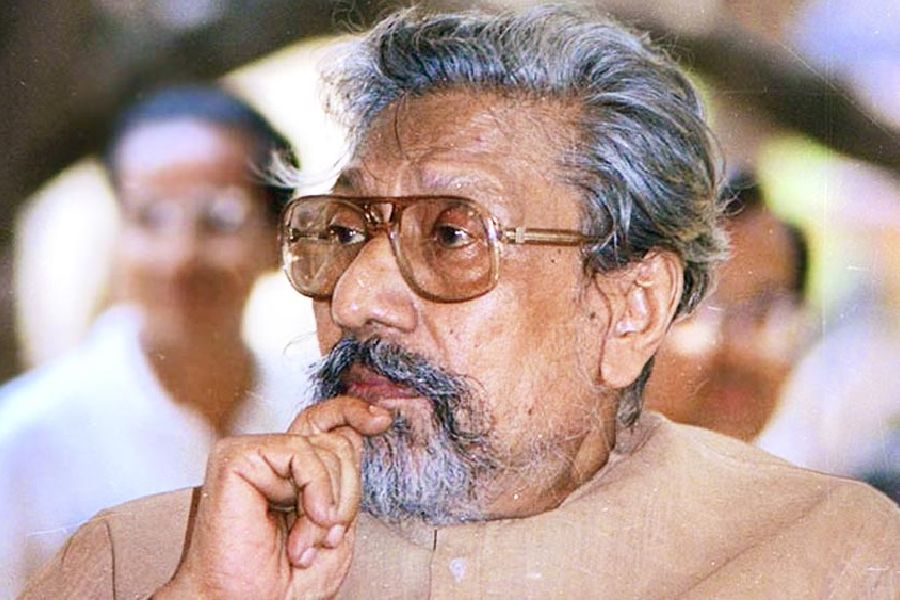Legendary theatre actor and director Sombhu Mitra passed away on this day. He was 92. He had ushered in a new wave in Bengali theatre. His unique and eloquent voice had added a striking new dimension to the stage.
He studied at St Xavier’s College. Early in life he acted in Rangmahal and Minerva theatres, among others, in Kolkata, and with Sisir Bhaduri. He joined Indian People’s Theatre Association (IPTA) in the early 1940s. The 1944 IPTA production of Nabanna, written by Bijan Bhattacharya and co-directed by Mitra, was path-breaking with its stark depiction of the 1943 famine. In 1948, Mitra formed Bohurupee, a theatre group, “with 15 artists for whom the theatre was not a livelihood but a dedication”, his Ramon Magsasay Award citation mentions.
Bohurupee’s plays were a stunning departure from conventional theatre. Devoid of sentimental themes and melodrama, they were about powerful acting and creative stagecraft. The economy also suited the shortage of funds. Among notable productions of Bohurupee, with which Mitra was associated as actor and director, are Pathik, Chhenda Tar, Ulukhagra (written by Mitra), and Rabindranath Tagore’s Rakta Karabi, Bisarjan, Raja and Char Adhyay. Mitra adapted for the Bengali stage the best-known world theatre, such as Ibsen’s A Doll’s House and Sophocles’ Oedipus Rex, making “dramatically meaningful in Bengali their moral concern with truth and self-realisation”, adds the citation.
Chandbaniker Pala, a play written by Mitra, is a masterpiece.
His other awards included Padmabhushan and Desikottama.
He was married to Tripti Mitra, an outstanding actress who acted in the Bohurupee plays. Their daughter Saoli Mitra was a noted stage actor and director.
